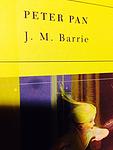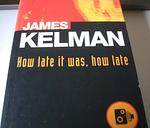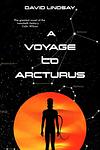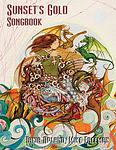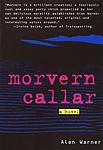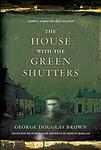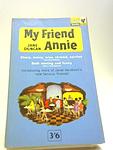The Greatest Scottish, South African "Fiction" Books Since 1900
Click to learn how this list is calculated.
This list represents a comprehensive and trusted collection of the greatest books. Developed through a specialized algorithm, it brings together 300 'best of' book lists to form a definitive guide to the world's most acclaimed books. For those interested in how these books are chosen, additional details can be found on the rankings page.
Genres
Countries
Date Range
Reading Statistics
Click the button below to see how many of these books you've read!
Download
If you're interested in downloading this list as a CSV file for use in a spreadsheet application, you can easily do so by clicking the button below. Please note that to ensure a manageable file size and faster download, the CSV will include details for only the first 500 books.
Download-
1. The Prime of Miss Jean Brodie by Muriel Spark
The novel is set in 1930s Edinburgh and follows the story of six girls under the tutelage of an unconventional teacher, Miss Jean Brodie. Miss Brodie, in her prime, takes it upon herself to educate the girls about life, love, politics, and art, often disregarding the traditional curriculum. The narrative explores the influence of Miss Brodie on the girls, the consequences of her nonconformist teachings, and the ultimate betrayal that leads to her downfall.
-
2. Disgrace by J M Coetzee
"Disgrace" is a novel that explores the life of a middle-aged professor in South Africa who is dismissed from his position after having an affair with a student. After losing his job, he moves to the countryside to live with his daughter, where they experience a violent attack that significantly alters their lives. The story delves into themes of post-apartheid South Africa, racial tension, sexual exploitation, and the struggle for personal redemption.
-
3. Cry, the Beloved Country by Alan Paton
"Cry, the Beloved Country" is a novel about a black Anglican priest from South Africa's rural Natal region who embarks on a journey to Johannesburg in search of his sister and son. The priest grapples with the racial injustice and social inequality of apartheid-era South Africa, while his son becomes involved in political activism and is wrongfully accused of a crime. The novel explores themes of love, fear, and social justice, while highlighting the destructive effects of apartheid on the human spirit and the South African landscape.
-
4. Waiting for the Barbarians by J M Coetzee
The novel is set in a small frontier town of an unnamed empire, where the magistrate lives a life of civil service and relative peace. His world is disrupted when the Empire declares a state of emergency due to rumors of barbarian uprising. The magistrate becomes a critic of the Empire's brutal and inhumane methods of dealing with the perceived threat, which leads to his arrest and torture. As he tries to understand his role in the vast political machinery, he also grapples with questions of power, justice, and humanity.
-
5. Lanark by Alasdair Gray
"Lanark" is an unconventional narrative that combines elements of fantasy, dystopia, and realism. The protagonist, a man named Lanark, moves through two parallel existences. In one, he's a young man named Duncan Thaw in post-war Glasgow, struggling with his artistic ambitions and personal relationships. In the other, he's Lanark in the grim, bureaucratic city of Unthank, suffering from a mysterious skin condition and grappling with his identity and purpose. The novel explores themes of love, alienation, creativity, and the human condition, presenting a complex and thought-provoking portrait of life and society.
-
6. Life & Times of Michael K by J M Coetzee
Set in South Africa during a civil war, the novel follows the journey of Michael K, a simple gardener with a cleft lip. When his mother falls ill, he attempts to take her back to her rural birthplace. After she dies en route, Michael continues the journey alone, struggling to survive in a war-torn landscape, while also being caught up in the bureaucratic red tape of the dystopian society. The story explores themes of freedom, survival, and the human spirit's resilience against adversity.
-
7. Peter And Wendy by J. M. Barrie
"Peter And Wendy" by JM Barrie is a beloved children's classic that tells the enchanting story of a young girl named Wendy Darling who, along with her two brothers, embarks on a magical adventure to the whimsical world of Neverland. There, they encounter the mischievous and eternal boy, Peter Pan, and his fairy companion, Tinker Bell. Together, they face thrilling escapades, battles with the villainous Captain Hook, and discover the importance of imagination, friendship, and the power of never growing up.
-
8. Burger's Daughter by Nadine Gordimer
"Burger's Daughter" is a novel centered around Rosa Burger, a white woman in South Africa during the apartheid era. The narrative delves into Rosa's life and struggle to find her identity, while also dealing with the legacy of her parents who were anti-apartheid activists. This story provides a deep look into the political and social climate of South Africa during a time of racial segregation and oppression.
-
9. Trainspotting by Irvine Welsh
This novel is a gritty, raw portrayal of a group of heroin addicts living in Edinburgh, Scotland. The narrative is non-linear and told from multiple perspectives, providing a deep dive into the minds and lives of these characters. The story explores themes of poverty, addiction, friendship, and the struggle to escape one's circumstances, all set against the backdrop of a bleak urban landscape. It is known for its strong Scottish dialect, graphic content, and dark humor.
-
10. July's People by Nadine Gordimer
"July's People" is a novel set in a hypothetical future where South Africa's apartheid system has collapsed and the nation is embroiled in a brutal civil war. The story follows a liberal white family who, fleeing the violence, are taken in by their black servant, July, in his rural village. The book explores the power dynamics and complexities of their relationship, as they navigate this new reality where traditional roles are reversed, and grapple with issues of race, class, and privilege.
-
11. A Dry White Season by Andre Brink
Set in apartheid-era South Africa, "A Dry White Season" follows the story of Ben Du Toit, a white schoolteacher who becomes involved in the fight against the system after his gardener's son is brutally beaten by the police. As he delves deeper into his quest for justice, he becomes increasingly isolated from his community and his family, and ultimately pays the highest price for his convictions. The novel is a powerful exploration of the devastating effects of racial injustice and the courage it takes to stand against it.
-
12. How Late It Was, How Late by James Kelman
The novel is a stream-of-consciousness narrative told from the perspective of Sammy, a shoplifter and ex-convict from Glasgow who wakes up in an alley after a two-day drinking binge to find he is completely blind. As Sammy struggles to navigate his new reality, he contends with bureaucratic systems, confronts his past, and grapples with his relationships, all while trying to understand and adjust to his sudden loss of sight. The story is a gritty exploration of working-class life, the human condition, and the nature of reality.
-
13. Chaka by Thomas Mofolo
This novel explores the life of Chaka, a legendary leader in Southern Africa who turns into a tyrant due to his insatiable thirst for power. The narrative focuses on his rise to power, his strategic military genius which leads to the expansion of the Zulu Empire, and his eventual downfall due to his increasing brutality and madness. The story is a blend of historical fact and folklore, creating a complex portrait of a man driven by ambition and consumed by his own power.
-
14. A Voyage To Arcturus by David Lindsay
"A Voyage to Arcturus" is a philosophical and allegorical novel that follows the journey of a man named Maskull to the planet Tormance, located in the star system Arcturus. As he explores this strange and mystical world, Maskull encounters various beings and experiences profound transformations, both physically and spiritually. Through vivid and imaginative storytelling, the book delves into themes of identity, morality, and the nature of reality, challenging readers to question their own perceptions and beliefs.
-
15. The No. 1 Ladies' Detective Agency by Alexander McCall Smith
The book follows the story of Precious Ramotswe, a woman in Botswana who opens the country's first and only female-run detective agency. She uses wisdom, intuition, and her understanding of human nature to solve various cases, from missing husbands to wayward daughters and con men. The story is not just about solving mysteries, but also provides a deep insight into the culture, landscape and people of Botswana.
-
16. Sunset Song by Lewis Grassic Gibbon
Set in the early 20th century in the fictional estate of Kinraddie in Scotland, the narrative follows the life of a young woman, Chris Guthrie, as she comes of age amidst the challenges of rural Scottish life. Torn between her love for the land and the pull of modernity, Chris navigates personal loss, the impact of World War I, and societal changes. The novel poignantly explores themes of identity, resilience, and the enduring connection to one's heritage, against the backdrop of the sweeping agricultural and social transformations of the time.
-
17. Morvern Callar by Alan Warner
The novel follows the story of Morvern Callar, a young woman living in a small Scottish port town, who wakes up one Christmas morning to find her boyfriend has committed suicide. Instead of reporting his death, she decides to erase all evidence of it, appropriates his unpublished novel as her own, and uses his money to go on a holiday in Spain. The book explores themes of grief, identity, and personal transformation, as Morvern navigates her way through life with a detached and indifferent attitude.
-
18. Consider Phlebas by Iain Banks
"Consider Phlebas" is a science fiction novel set in a vast and chaotic universe where different civilizations and species clash. The story follows a protagonist named Bora Horza Gobuchul, a shape-shifting mercenary who becomes entangled in a dangerous mission to retrieve a powerful artifact from a religious cult. As Horza navigates treacherous alliances and battles, he also grapples with questions of identity, loyalty, and the nature of humanity. With its epic scope and thought-provoking themes, the novel explores the complexities of war, morality, and the search for meaning in a universe teetering on the brink of destruction.
-
19. Dusklands by J M Coetzee
"Dusklands" is a novel divided into two distinct parts, each examining the theme of imperialism. The first part follows a psychologically unstable American government researcher during the Vietnam War, who is tasked with developing propaganda to justify the conflict. The second part is a historical narrative set in the 18th century, exploring the violent colonization of South Africa by the Dutch. The stories parallel each other, highlighting the destructive nature of imperialism and the psychological effects it has on individuals.
-
20. In the Heart of the Country by J M Coetzee
Set in South Africa, this novel tells the story of a woman living on a remote farm who is isolated not only geographically but also emotionally and psychologically. After her father marries his young mistress, the protagonist's life spirals into madness and tragedy. The narrative explores themes of loneliness, power dynamics, and the harsh realities of life in apartheid-era South Africa, all presented through the protagonist's fragmented and unreliable perspective.
-
21. House With The Green Shutters by George Douglas Brown
The novel is a stark portrayal of small-town life in Scotland at the turn of the 20th century, focusing on the Gourlay family, who are brought to ruin by the tyrannical and arrogant John Gourlay. Despite his initial success as a merchant, Gourlay's hubris and inability to adapt to changing times lead to his downfall, exacerbated by the malicious gossip and envy of his neighbors. The story is a grim depiction of the destructive power of pride and the often cruel nature of community life, where the failings of one family become a spectacle for public scorn and schadenfreude. The green shutters of the Gourlay's house come to symbolize the envy and the facade of respectability that hide the family's internal decay and disintegration.
-
22. Use Of Weapons by Iain Banks
"Use of Weapons" is a gripping science fiction novel that follows the life of a skilled and enigmatic mercenary named Cheradenine Zakalwe. The story alternates between two timelines, exploring Zakalwe's dangerous missions and his troubled past. As the narrative unfolds, secrets are revealed, and the true nature of Zakalwe's character is gradually unveiled, leading to a shocking and thought-provoking conclusion. With its intricate plot, complex characters, and philosophical undertones, this book offers a thrilling and introspective exploration of war, morality, and the human condition.
-
23. Ancestral Voices by Etienne van Heerden
"Ancestral Voices" is a haunting novel set in South Africa during the apartheid era. The story follows a young boy who grows up in a small rural town, navigating a complex web of familial relationships and secrets. As he matures, he becomes increasingly aware of the racial and social injustices that surround him. The book explores themes of identity, heritage, and the harsh realities of life under apartheid, all weaved together with a deep sense of the mystical and the supernatural.
-
24. The Conservationist by Nadine Gordimer
The book is a character-driven novel set in South Africa during the apartheid era. The protagonist is a wealthy, white industrialist who buys a farm with the intention of using it as a weekend retreat. However, the farm proves to be unprofitable and difficult to manage, and the protagonist's life becomes intertwined with the lives of the black people who live and work on the land. The narrative explores themes of ownership, identity, and the struggle for meaning in a racially divided society.
-
25. My Friend Annie by Jane Duncan
"My Friend Annie" is a heartwarming tale set in the Scottish Highlands, where the protagonist, a young woman, forges a deep and unlikely friendship with Annie, a girl from a very different background. Despite the initial cultural and social barriers, the two women discover common ground and shared experiences that transcend their differences. The story explores themes of friendship, acceptance, and the power of human connection, as the protagonist learns valuable life lessons through her bond with Annie, ultimately leading to personal growth and a broader understanding of the world around her.
Reading Statistics
Click the button below to see how many of these books you've read!
Download
If you're interested in downloading this list as a CSV file for use in a spreadsheet application, you can easily do so by clicking the button below. Please note that to ensure a manageable file size and faster download, the CSV will include details for only the first 500 books.
Download





